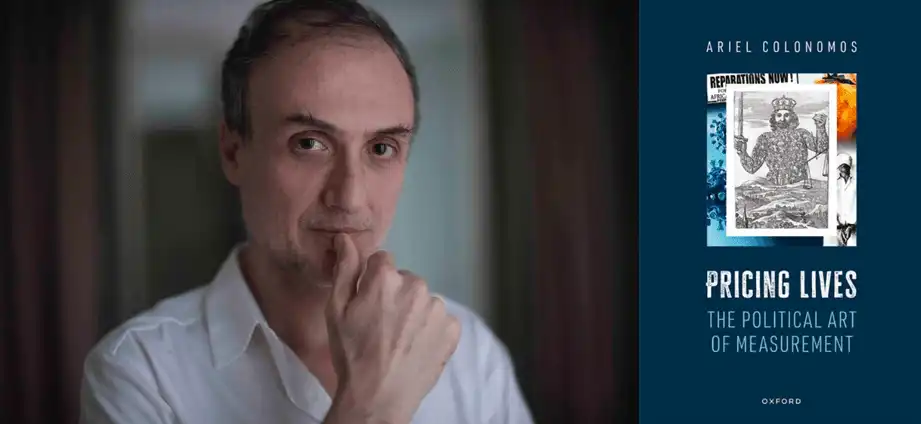Home>Researcher Ariel Colonomos Recipient of the International Ethics ISA Book Award
10.04.2025
Researcher Ariel Colonomos Recipient of the International Ethics ISA Book Award
Ariel Colonomos, CNRS Senior Researcher at Sciences Po Center for International Studies (CERI) and author of the book Pricing Lives published by Oxford University Press, (2023) is the recipient of the 2025 International Ethics Book Award, awarded by the International Studies Association (ISA).
How do we price lives? This question, far from being rhetorical, refers to notions that lie at the core of the political. Ethically, from a principled approach perspective, lives have an infinite value. However, politically, lives can be valued in material terms, i.e. they can be put in balance with material interest, whether these interests are monetary or political (such as the national interest).
A short interview with the author led by Miriam Périer, available in full on CERI's website:
Who gives the value of human life? Who pays and who is paid?
Human lives are one of the two elements that are constitutive of an equilibrium where lives are put in balance with interests. This balance between lives and interests, I argue, is constitutive of the political as a sphere. As in every other form of exchange, we can use one element to measure the other. This is the reason why lives are the measure of our interests, as much as interests are the measure of our lives.
Indeed, we pay for lives by making concessions with our interests (whether they are political, such as in the field of security, what we consider to be our “national interest”, or economic), and, we pay with lives in pursuit of some of the goals that constitute for us primary interests (in war, for example, but, as I argue in the book, in many other fields as well, such as in the domain of global health).
This balance is constitutive of the political, in so far as measurement is the challenge of politics defined as an art, and maintaining the stability of that delicate equilibrium is an essential task. I borrow examples from different countries and different time periods: I want to show how this principle is widely shared throughout time and space.
States have the upper hand in this process, and they usually rule over who gets what, as well as who must sacrifice their lives and who gets to be saved. However, we see two other players in this game: markets and communities.
The market is a place where these exchanges take place—i.e. when claims for reparations are filed, when companies get fined because of the harm they might cause to the environment, or when insurance companies price the lives of hostages.
Communities also take an active role and, depending on the political context they are in, could even have a bigger role in the balancing of lives and interests. Communities get reparations for historical injustices, “communities” of victims in the U.S. were granted reparations in the aftermath of 9/11. We may consider that communities in the Amazon should get reparations because of the damages caused to the environment.
I also discuss in my book other cases that are related to migration, where I argue that communities of migrants should benefit from financial support when their lives are endangered.
Why does the equilibrium between interests and lives tell us who we are and who we are not?
Pricing lives is what defines the political as a space. Marxists tend to view the political as the locus of domination, Schmitt considers that the distinction between friend and enemy is what defines the political, Weber highlights the central role interests play in the political sphere.
My approach is in contrast with these traditional theories (and stands very much in contradistinction to that of Schmitt). As I said earlier, I build a model that is influenced by Hobbes. Indeed, Hobbes pointed to the central role human lives play in a political society and in the definition of a political contract between its members. I just view differently the elements that bind people together within a single society.
In that space, by making the choices we make, we tell other people who we are. Deciding to save people even if it is costly becomes a marker of our identity. See the debates around hostages and the difference between those countries that decide to make compromises with hostage-takers and others that do not. Choosing one over the other is very telling about the kind of society we want to live in.
If we compromise, we make the choice of solidarism and we clearly signal that we are not the kind of society where the opposite kind of choice would prevail. See the debates around proportionality in warfare. If we decide to value highly the lives of civilians in the countries we are at war with, even if it hurts some of our tactical, strategic, and political interests (as compared to situations where you would fight indiscriminately to pursue your immediate goals), we also display what are our core values in contradistinction to other values we do not want to share.
These are fundamental choices, these are not isolated questions, these are constitutive of our identity: we are that balance.
